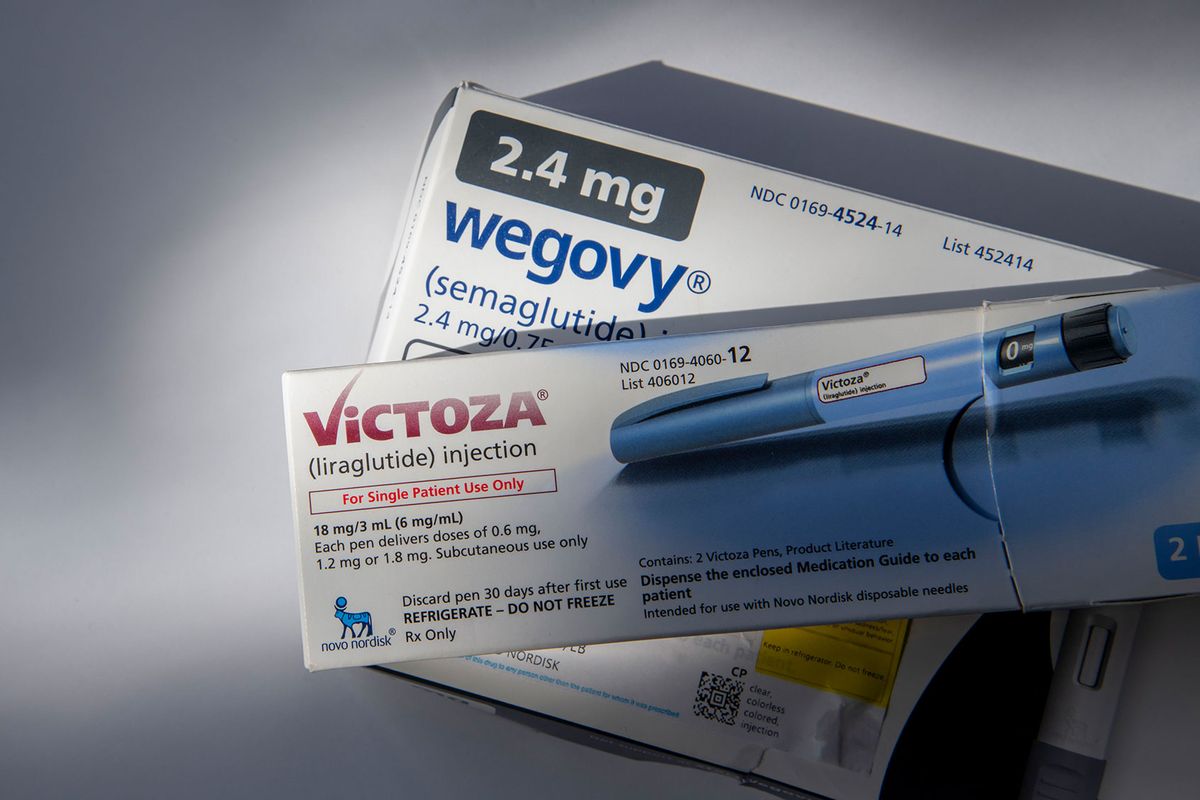Major corporations are tapping into the lucrative weight loss drug market, which is anticipated to grow from $6 billion to $100 billion by 2030, per Goldman Sachs. Last month, Costco announced that it was expanding its partnership with Sesame — an online telemedicine platform that connects medical providers nationwide with consumers — to offer eligible members exclusive pricing on prescriptions for GLP-1 weight loss drugs including Ozempic and Wegovy. The big-box retailer's weight loss program followed in the footsteps of rivals Amazon and WeightWatchers, which offer similar services to members. Same with luxury gyms, like Life Time and Equinox, which debuted new clinics to accommodate their growing number of members who are on such medications.
Now, Nestlé is joining the mix with a new frozen food brand for individuals taking GLP-1 drugs. Called Vital Pursuit, the brand will include 12 portion-controlled meals, high in fiber and protein, “intended to be a companion for GLP-1 weight loss medication users and consumers focused on weight management,” the company announced Tuesday. The meals will be available in select stores later this year and may come with a suggested retail price of $4.99 or less, CNN reported.
“We know that every consumer on a health journey has individualized needs and considerations, and having options to support those needs will continue to play an important role,” Tom Moe, president of Nestle USA Meals Division, said in a statement obtained by CBS News.
GLP-1 agonists, a class of type 2 diabetes medication that gained popularity online as an anti-obesity drug, are on the rise. Overall, one in eight American adults have used a GLP-1 agonist, per Healthline. Half of those individuals are reportedly taking one of these drugs, whether that’s Novo Nordisk’s Ozempic and Wegovy or Eli Lilly’s Mounjaro and Zepbound, among other medications. Approximately nine million prescriptions were written for GLP-1 medications in the fourth quarter of 2022, according to analytics firm Trilliant Health. And an astounding 24 million people, or 7% of the U.S. population, is expected to be using the drugs by 2035, Morgan Stanley Research analysts predicted in a recent report.
Drugs like Ozempic and Wegovy work by mimicking the action of a hormone called glucagon-like peptide 1 (GLP-1), which is responsible for managing blood sugar levels, slowing digestion and reducing hunger and food intake. GLP-1 levels are lower in those living with obesity but can be "enhanced" and function on a cellular level via these medications. Studies have shown that patients using GLP-1 agonists alongside making lifestyle changes lost about 33.7 pounds (15.3 kilograms) versus 5.7 pounds (2.6 kilograms) in those who didn’t use the drug.
Research into GLP-1 weight loss drugs is still ongoing, but doctors do know that the medication slows the movement of food from the stomach into the small intestine. As a result, patients tend to feel full faster and longer, and eat less. Patients are advised to follow a balanced diet in order to heighten the effects of the medication in managing blood sugar levels and weight.
Nestlé’s Vital Pursuit hopes to supplement prescription drug users with the key nutrients they may be missing due to consuming less food. The meals are made with whole grains or protein pasta and enriched in nutrients like potassium, calcium and iron. A specific meal lineup has yet to be announced, but the brand reportedly touts offerings like whole grain bowls, sandwich melts and pizzas.
Shortly after Vital Pursuit was announced, Nestlé received backlash from chef and television personality Andrew Zimmern who slammed certain users of blockbuster weight loss drugs while speaking with TMZ. Although he supports the drugs helping people, especially “for those in an obese category or if they have comorbidities,” Zimmern said he's not a fan of them in other instances.
We need your help to stay independent
“There is something a little messed up about people buying $200 — $300 injectables and jamming them into their stomach just to look better,” Zimmern said in a clip from the interview.
He continued, speaking about the irony of “some big processed food companies” launching a food line that’s eaten with weight loss drugs: “I think the really sad truth is we’re gonna have more processed food that costs $5 or less to go with your very expensive injectable. I also think linking a drug like Ozempic with a food line is about as messed up as it gets.”
Zimmern went on to suggest that obesity can easily be combated by “taking care of our bodies” through eating healthy, sleeping, exercising and practicing good habits. “It really is that simple,” he said.
Want more great food writing and recipes? Subscribe to Salon Food's newsletter, The Bite.
Weight loss medications continue to be a contentious topic. Many have described the drugs as “lazy” while others bashed weight loss companies — and now major corporations — for seeking out a quick-fix solution. Those who are actively on the medications praised them as life-changing and helpful. But mainly, they stressed that the medications are a necessity.
Oprah Winfrey, who revealed in December that she’s been using weight-loss medications as a “maintenance tool,” is one of the most vocal supporters of the drugs. Winfrey highlighted the power of weight loss drugs in her prime-time ABC program, aptly titled “An Oprah Special: Shame, Blame and the Weight Loss Revolution.”
“In my lifetime, I never dreamed that we would be talking about medicines that are providing hope for people like me who have struggled for years with being overweight or with obesity,” Winfrey said. “So, I come to this conversation in the hope that we can start releasing the stigma and the shame and the judgment to stop shaming other people for being overweight or how they choose to lose, or not lose weight, and more importantly to stop shaming ourselves.”

Shares